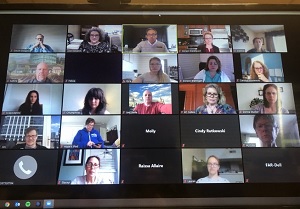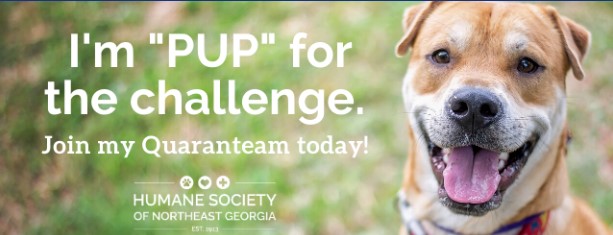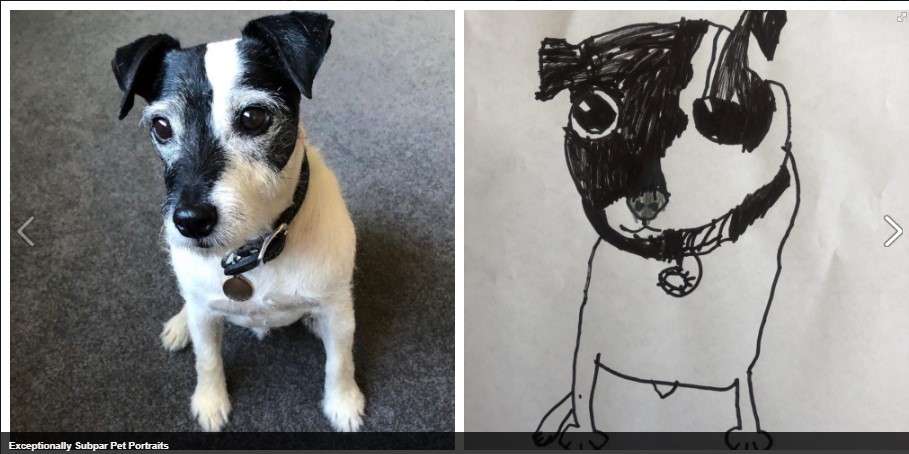A Virtual Town Hall hosted by Newport ONE

April 7, 2020
More than 40 animal nonprofit and fundraising professionals joined Newport ONE’s Town Hall to discuss strategies for staying connected and raising critical funds during the COVID-19 crisis.
The discussion featured two animal welfare pros: Julie Edwards, Executive Director of the Humane Society of Northeast Georgia (HSNEGA), and Miriam Davenport, Vice President of spcaLA (Los Angeles). Both leaders are doing an extraordinary job of connecting with their constituents under these extreme circumstances.
Edwards shared that they put together a big adoption and foster event in the early days of the COVID-19 warnings. HSNEGA was successful in getting every animal either adopted or fostered, so they could close the shelter and keep their staff and animals safe. They also had to cancel all of their spring fundraising events including their Yappy Hours, which raise an average of $3,000 each. To try to make up for the lost revenue, Edwards reached out to 10 of her most loyal and dedicated donors and was able to secure enough pledges to promote a $10,000 match campaign through a three-part email series. The campaign successfully raised more than $13,000 and unlocked the match for the additional $10,000. As a result of that campaign, another generous donor came forward to offer an additional $10,000 for a second matching gift campaign.
A lightbox pop-up and several well-placed donation buttons have been added to the HSNEGA website, along with important information about COVID-19 and pets, and shelter’s closure status. An emergency insert about the pandemic was added at the last minute to the shelter’s newsletter, which arrived in donors’ homes at the end of March.
This week, Edwards and her team launched a social media fundraising campaign called “Quaranteam.” During this peer-to-peer event, team members sign up to raise $100 or more to be entered in weekly drawings for gift cards and prizes. After only one week, they have already raised $3,100.

“It’s unlikely we’re going to get a major gift right now as a result of the stock market declines, so our focus is on getting many more smaller gifts to raise the funds we need right now,” says Edwards.
Even though HSNEGA’s shelter is closed, they are using updates from adopters and fosters for content on social media. They are also using this time to focus on donor stewardship.
“Talk about your mission and the animals in your care, not about your organization. The less you can say “we” or name your organization, the better. Tell the stories and how [the donors] are helping.”
Edwards and her team have launched “Feel Good Fridays” during which they repurpose popular social media posts in emails to the donors. They are also taking the time to call donors to check on them and show they care.
Miriam Davenport of spcaLA shared her shelter’s activities in the wake of COVID-19. Since California was an early shelter-in-place state, spcaLA was ahead of most other shelters in preparing for a likely closure and disruption of service. Davenport and her team launched an email to their donors and constituents to provide an update on shelter operations, the animals in their care, and ways donors can help. Their message “we will continue to serve” recalled that the 143-year-old agency has continued to serve through the Spanish Flu in 1918, the Great Depression, two world wars, and numerous other economic and natural crises, putting into perspective the agency’s resilience and long-standing donor commitment to spcaLA’s mission. Davenport reminds her team to focus on the donors and donor relationships whenever faced with challenges. “They are the ones who will help us get through this,” she says.
Since early March, spcaLA has increased their number of emails and social posts to keep their constituents and followers informed, while expressing the ongoing and urgent need to support the animals in their care and with fosters during this uncertain time. The donors have responded generously. Davenport reported that their online giving was up 50% over last March.
Social posts about crafts kids can do at home, and happy stories of adoptions are sprinkled throughout. They take an integrated communications approach.
“What is posted on social media is reflective of what is sent in email and additional one-on-one communications,” says Davenport.
Davenport shared the updates spcaLA made to their website to provide information and raise funds. A persistent banner was added to the top of their website (spcaLA.com) to provide resources and information around COVID-19.

Beyond information about shelter hours and closings, they added information for donors to drop off goods.
“In all our all messages, we are reiterating ‘spcaLA is essential. We need your help and there are a lot of ways to help’.”
In addition to direct financial gifts, spcaLA is promoting gifts in kind, Amazon Smile, and other ways donors at all levels can be helpful.
“All of us in fundraising know if you don’t ask, you’re not going to get it. We know the next thing we’re going to see is more animals coming in, and we have to be prepared to do that. And the only way we’re going to be able to do that is if we ask.”
Craig DePole, President of Newport ONE, and David Gregory, Vice President for Strategic Development at Newport ONE, moderated the discussion. DePole recognized that moments like these call on fundraisers to be nimble and innovative, to think outside the typical, to do things that are untested, and to leverage what they can from others.
Previous analysis has proven that charitable giving remained steady for at least nine months following the start of the economic downturn from the 2008-2009 Recession. Donors are resilient, and their passion for animals and other causes doesn’t change, even in a crisis like this.
While we don’t know what the outcome will be or the full impact on our communities when we are able to resume our normal lives, we know that constituents want to hear from their organizations about how they’re managing, how the animals are doing, and how they can help. And they want to know that the organizations care enough to check in with them.
“It’s imperative to not pull back on your fundraising plans at this time,” says DePole. “Every analysis of every past major event or disaster—recession, 9/11, natural disasters— shows that significant reductions in direct response fundraising following the disasters resulted in significant losses of donors and, ultimately, loss of revenue.”
Participants chimed in with questions and offered other innovative ways they were working to weather any fundraising challenges.
Mary Yenter from Paws Humane Society (Columbus, GA) shared they participated in a Mutt Madness event that pitted several shelters across the country in a bracket-style competition similar to the NCAA basketball tournament. Paws Humane made it to the final round and ultimately won in “championship” by raising $11,000.
Sean Farnan of SPCA Northern Nevada added that they launched a social media fundraiser called “Exceptionally Subpar Pet Portraits.” Each portrait is drawn by their volunteers and staff for a $10 donation as a way to raise funds and provide a little humor. The response has been overwhelmingly positive. The campaign has already raised $4,500 and they extended the deadline.

KC Collins of the Hawaiian Humane Society is planning a virtual planned giving event for interested donors. She noted that, as a result of the crisis, Google has reported a substantial increase in online searches for information about wills and estate planning. Collins will use the online event to offer valuable information to her constituents.
You can download the recording of the Town Hall at newportone.com. Newport ONE will be hosting additional Town Halls on a range of topics in the future. For more information, or to be added to the invitation list, email David Gregory, dgregory@newportone.com.
